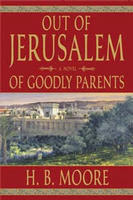By Heather B. Moore
Finding peace in our lives may sometimes seem impossible as we struggle with disappointments, broken hearts, illness, death of a loved one, or financial problems.
President Heber J. Grant outlived many members of his immediate family, including his parents, his first wife, Lucy, his only two sons, then later his second wife, Emily, and then his daughter.
His wife, Lucy, suffered a long illness and just an hour before her death he called his children into the room. He told them it was time to say goodbye to their mother. One of his daughters, about 12 years old, said that she wanted him to lay his hands upon her mother and heal her, as he had done to relieve her pain in the past.
President Grant tried to assure his daughter that it was her mother’s time to go. When the children left the room, he knelt and prayed, telling the Lord that he acknowledged His hand in life, in death, in joy, in sorrow, in prosperity, or adversity. He was grateful that his wife belonged to him for all eternity, and that the power and authority of the priesthood had been restored. Then he prayed that his little girl would acknowledge that it was God’s will that her mother should die.
After Lucy passed away, President Grant called the children back into the room. His 5-year old son was weeping bitterly when his 12-year old daughter said, “Do not weep, do not cry, Heber; since we went out of this room the voice of the Lord from heaven has said to me, ‘In the death of your mamma the will of the Lord shall be done.’”
Later, before a congregation, President Grant said, “Tell me, my friends, that I do not know that God hears and answers prayers! Tell me that I do not know that in the hour of adversity the Latter-day Saints are comforted and blessed and consoled as no other people are!” (Teachings of Presidents of the Church: Heber J. Grant, 43)
Through prayer, we can find peace and learn to accept the Atonement in our lives. Often trials are unexpected, and we are overwhelmed with the change of events—we lose sleep, our appetites, and are at a loss for a solution. The following quote refers to the trial of losing a loved one, but can be applied to much more:
President Monson said, “Frequently, death comes as an intruder. . . . Death lays its heavy hand upon those dear to us and, at times, leaves us baffled and wondering. In certain situations, as in great suffering and illness, death comes as an angel of mercy. But to those bereaved, the Master’s promise of peace is the comforting balm which heals: “peace I leave with you, my peace I give unto you: not as the world giveth, give I unto you. Let not your heart be troubled, neither let it be afraid”(John 14:27) (“Finding Peace,” Ensign, Mar. 2004, 6–7).
As members of the LDS church, we’ve been given additional knowledge of the cycle of life through the plan of salvation. We know that our trials are short in comparison to the eternal realm. But if we are searching for worldly peace or worldly solutions for our trials, we’ll find little comfort.
The Savior said, “I am the resurrection, and the life. He that believeth in me, though he were dead, yet shall he live: And whosoever liveth and believeth in me shall never die”(John 11:25–26).
The Savior took upon Himself the Atonement so that we might have hope, that we might overcome our trials, be forgiven and washed clean time and time again, in order to live with Him.
Neal A. Maxwell said, “Trying to comprehend the trials and meaning of this life without understanding Heavenly Father’s marvelously encompassing plan of salvation is like trying to understand a three-act play while seeing only the second act” (“Enduring Well,” Ensign, Apr. 1997, 7).
We need to trust in the Atonement and accept what the Savior has so freely offered us. Only then can we be made whole, as Isaiah clarified: “Surely he hath borne our griefs, and carried our sorrows. . . . And with his stripes we are healed” (Isa. 53:4–5; emphasis added).
The hardships and trials of this life will pass, and the time will come when we “shall stand up in the presence of the living God, filled with joy and peace and satisfaction" (Teachings of Presidents of the Church: Heber J. Grant, 46).
Monday, November 1, 2010
Subscribe to:
Comments (Atom)













